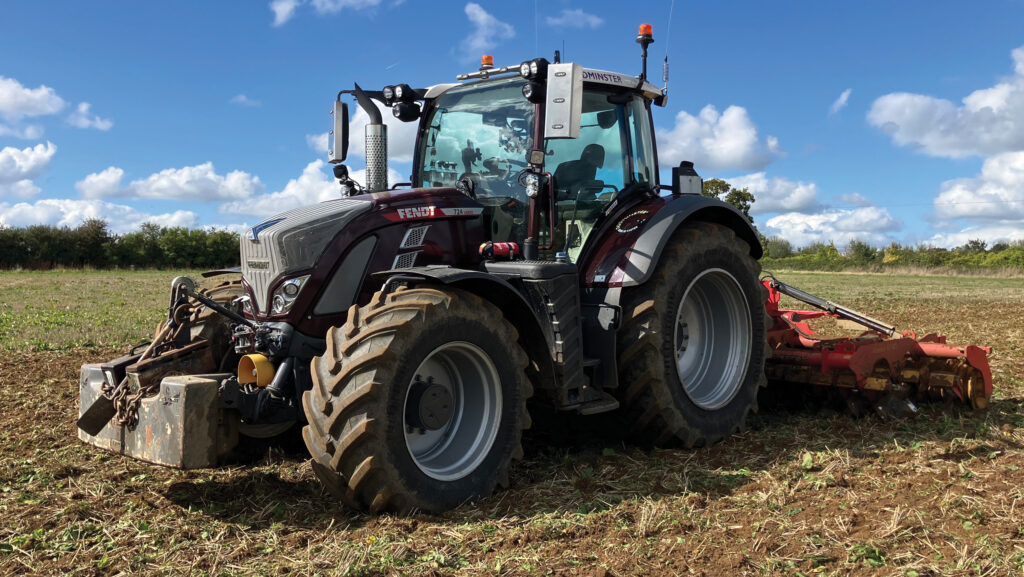This Week in Farming: Tillage kit, courtroom drama and IHT
 Tractor at Godminster Farm © MAG/Emma Gillbard
Tractor at Godminster Farm © MAG/Emma Gillbard Welcome back to another edition of This Week in Farming, your one-stop shop for the best Farmers Weekly content from the past seven days.
First, here are your markets (opens as PDF). Rapeseed has once again passed the £400/t and there’s been a healthy jump in liveweight lamb prices amid plenty of talk about how buoyant the store job is too.
Before we jump into this week’s news I also want to give a special mention to the Oxford Farming Conference, who FW is once again partnering with to deliver a special edition of Farmers Weekly Question Time.
Tickets to attend in person or online are still available and you can find details of the whole event right here.
Now, on with the show.
Inheritance tax latest
Fresh concerns have been raised about the toll the proposed changes to inheritance tax will have on affected farming families.
Ministers have trumpeted the fact that the payment can be spread interest-free over 10 years.
However, being eligible for that will require the first payment being made no more than six months after a death – something that requires probate to progress much more quickly than is likely, given the complexity of valuing the farm business assets.
Succession drama
The passage of a farming business from one generation to another isn’t always a smooth business anyway, with most people well aware of a story of family strife that has arisen from it.
For the latest example, just look at this write-up of a recent case that made it all the way to court (and cost £700,000 in legal fees).
One way to help minimise the risk of this is a family charter – a quite common method in New Zealand, Australia and the US, but very rare in the UK.
Find out how this method underpinning a more collaborative decision-making structure could work.
Muck and slurry management
More grants are coming down the track in 2026 for muck and slurry management in each UK nation, even though application windows are currently not open.
Check out our handy guide to what’s happening where and when in each region. And here’s advice to taking the first steps to improving on-farm water quality if you need to.
A dry and open autumn has reignited focus on the October-to-March slurry-spreading ban in Wales, with dairy producers frustrated at the Welsh government’s slow progress on a promised working group.
As well as putting it on the ground, some farmers are turning to anaerobic digestion to process the product and make money from it. Want to do likewise? Here’s what to consider.
Organic insight
Dairy and arable farm manager Peter Cheek is our magazine’s cover story this week.
We delve into how he grows crops to feed the herd in Somerset without ploughing or the use of glyphosate.
Instead, his current system is based on a Vaderstad Carrier with cross-cutter discs, which has greatly improved seed-bed preparation and weed control, as well as reducing labour and fuel costs.
It’s been a busy time for tillage equipment launches of late, with the machinery desk writing stories this week on:
- Grange Machinery’s first trailed Low Disturbance Loosener
- NRH Engineering releasing a wider, folding Tremor subsoiler
- Lemken’s pair of new rigid-frame Onyx subsoilers and
- Horsch’s new 12-row single-grain drill for maize and other row crops.
Who’s up and who’s down?
On the up this week are Transition Farmers Karen and Tom Halton.
The well-known Cheshire dairy farmers were served notice on much of their tenanted farm this year and chose to disperse nearly all their herd at a recent high-profile sale.
They spoke to Debbie James about finding the positives in a planned exit and what they intend to do next.
Feeling down are horticultural producers and other farms, who are significant electricity users and facing a major hike in their standing charges. The NFU is launching a fightback.
Listen to the FW Podcast
Don’t forget to tune in to the Farmers Weekly Podcast, with Johann Tasker, Louise Impey and Hugh Broom.
This week, the team discuss why retailers are refusing to engage with reforms to farm assurance, a scientific breakthrough that could spell the end of classical swine fever and why the world needs more red meat.
You’ll find it anywhere you listen to podcasts, or listen free on the FW website.
